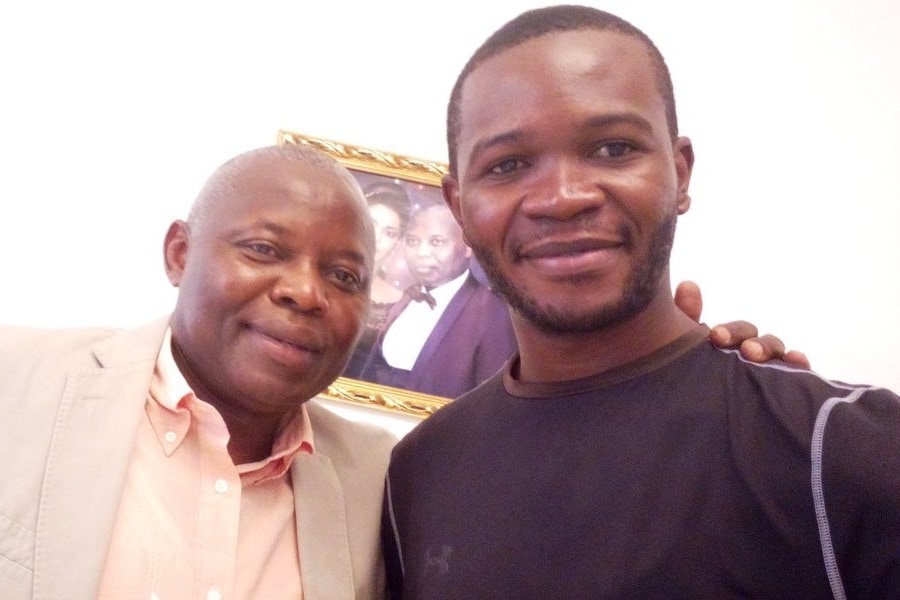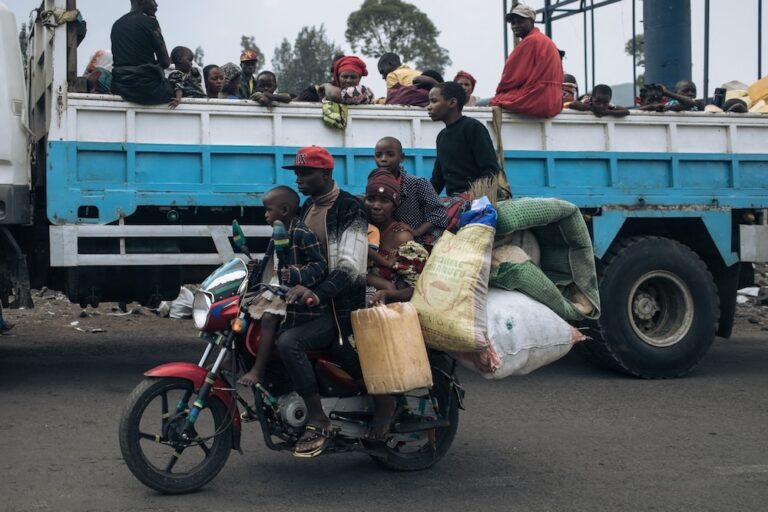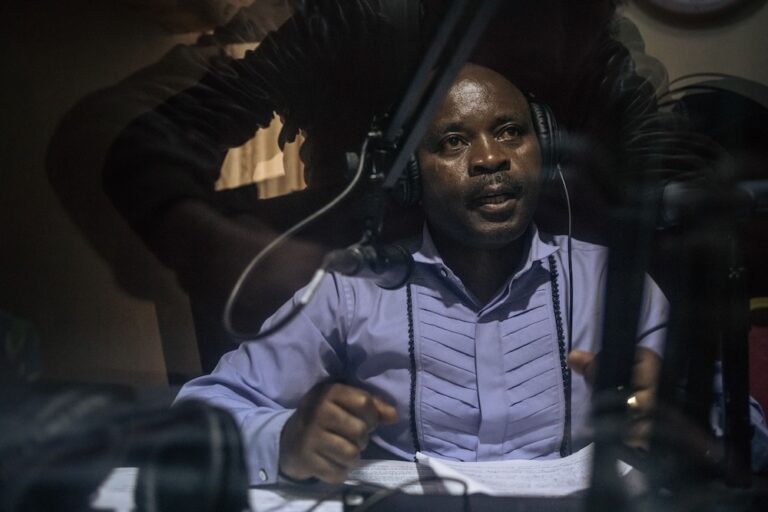Media advocates repeat their request to have Congolese journalist Stanis Bujakera released.
This statement was originally published on rsf.org on 12 January 2024.
Alongside the media Jeune Afrique and Actualité.cd for which Stanis Bujakera works, Reporters Without Borders (RSF) is once again calling for the release of the Congolese journalist, who has been held since 8 September 2023. A number of prominent figures have joined the public campaign. A new hearing in the case will take place in Kinshasa on 12 January.
“Without dignity, there is no freedom, without justice, there is no dignity, and without independence, there are no free men.” These words, which Congolese leader Patrice Lumumba, wrote from prison in his last letter to his wife, Pauline, in November 1960, resonate with renewed force today in the Democratic Republic of Congo.
Stanis Bujakera – the DRC’s most popular journalist with more than 570,000 followers on X, the Kinshasa correspondent of Reuters and the Paris-based news magazine Jeune Afrique, and deputy editor of the Congolese news site Actualite.cd – has been held in a crowded prison cell in Kinshasa for the past four months because of a Jeune Afrique story linking a Congolese military intelligence agency to the murder of Chérubin Okende, a former government minister turned opposition politician.
“My imprisonment is a test for independent journalism’s future in the DRC,” Bujakera told RSF when it visited him in prison in October. “There is no way I will give in to imaginary accusations,” he added.
Hastily trumped-up charges
Investigations carried out by RSF and the Congo Hold-Up consortium have demonstrated that the case against Bujakera was hastily fabricated by the prosecution.
Arrested on 8 September on the basis of a wanted notice, Bujakera was initially accused of having circulated – and then of having forged – the confidential internal memo written by an official within the National Intelligence Agency (ANR) that served as the basis for the Jeune Afriquestory.
The prosecutor’s grounds for keeping him in prison was nothing more than a technical report by a police “expert” that it requested only after his arrest. No additional investigative action was taken. The only statements in the prosecution case file are Bujakera’s.
The government, the prosecutor’s office and its “expert” maintain that the confidential ANR memo was forged, but they have produced no evidence to support this claim. The court has so far not heard testimony from any witness or expert about the memo and its contents.
RSF, which has conducted one of the two independent investigations into this case, believes that the memo is authentic. This is also the view of the Belgian lawyer engaged by the murdered Congolese politician’s family, who has filed a complaint in Belgium against the head of the Congolese military intelligence agency that is named in the ANR memo.
Technical impossibility
While on the one hand accusing Bujakera of forging the memo, the prosecutor’s office also claims that he received it via the Telegram instant messaging service and was thereafter the first person to begin circulating it. The police expert used by the prosecutor’s office claimed that he identified Bujakera from analysis of the metadata of the photo of the memo shared via Telegram and WhatsApp. But this is technically impossible, according to the Telegram and WhatsApp representatives who were contacted in the course of the investigation that Congo Hold-Up conducted jointly with Jeune Afrique.
As for the IP address from which Bujakera supposedly shared the memo, it belongs to the Spanish company Bullhost, which says it is used solely on an internal server.
Claiming to accede to a defence request for a report by an alternative, independent expert, the court appointed the clerk of the Kinshasa-Gombe appeal court as the “approved expert.”
This court official began his “investigations” without informing Bujakera’s lawyers and after consulting with the prosecutor’s office, which constitutes yet another violation of the defence’s rights. Furthermore, this “expert” lacks the qualifications for the assigned tasks, as the prosecutor’s office has itself acknowledged.
In the light of all these facts and the many irregularities that have marked these shocking proceedings, the one and only next logical step must be Bujakera’s immediate and unconditional release.
Respect for media freedom and diversity and the rights of journalists are as essential as ever in the DRC, which continues to face many political, economic and security challenges in the wake of the elections held on 20 December.
During his campaign for reelection in November, President Félix Tshisekedi said he might “perhaps” pardon Bujakera after he had been convicted. As Tshisekedi prepares to begin his second term, we hope that he will bring Bujakera’s incarceration to an end now, without waiting for this sham trial to conclude.
Without justice, there is no dignity. And Without dignity, there is no freedom.
Free Stanis. Now.



